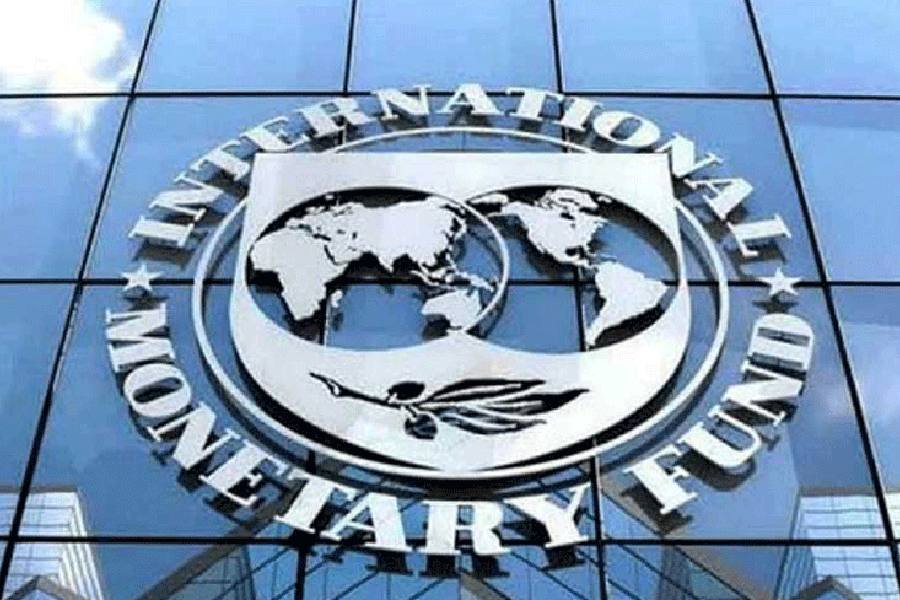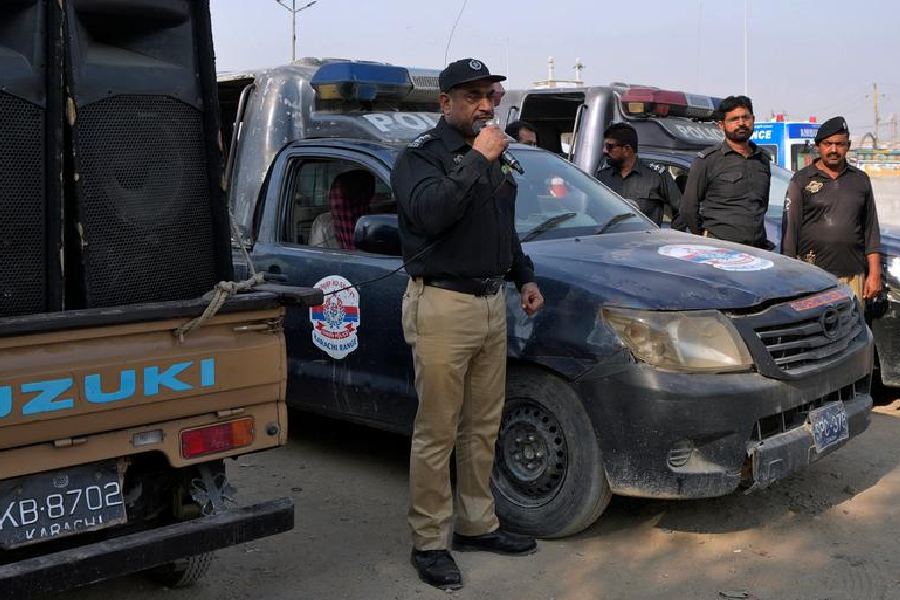Cash-strapped Pakistan and the IMF have kicked off the much-awaited loan review talks for the release of the USD 710 million second tranche of a USD 3 billion bailout package on a generally positive note.
Caretaker Finance Minister Dr Shamshad Akhtar and the International Monetary Fund's (IMF) mission chief for Pakistan, Nathan Porter, led their sides to the opening round of two-week-long negotiations to discuss the next tranche based on Pakistan's performance in the first quarter that started in July.
Porter "appreciated the government's commitment" to meeting the first-quarter targets, the Ministry of Finance said in a statement after the meeting, which has set the stage for a deep dive into forward-looking reforms under a nine-month bailout package, slated to be completed in March next year.
He also "commended the government's efforts and measures taken in some critical areas" and underscored the importance of continuing these efforts to stay on track for ensuring the country's economic stability, the ministry said.
According to The Express Tribune newspaper, Porter inquired the Pakistani authorities about the next general elections and the functioning of the Special Investment Facilitation Council -- the two most crucial issues that affected the country's political and economic landscapes.
Hours after the IMF-Pakistan opening session on Thursday, it was announced that Pakistan's general elections will be held on February 8, ending uncertainty over the much-awaited polls in the cash-strapped country.
The announcement came after the election commission officials met President Arif Alvi at the directives of the Supreme Court.
The clarity on the election date will strengthen the hands of the Ministry of Finance during the negotiations, although the IMF has not explicitly attached any such condition.
The meeting was attended by IMF's resident representative in Islamabad, Esther Perez Ruiz, State Bank Governor Jameel Ahmed, Federal Board of Revenue (FBR) Chairman Amjed Zubair Tiwana, Securities and Exchange Commission of Pakistan Chairman Akif Saeed, Finance Secretary Imdadullah Bosal, senior finance ministry officials and several IMF delegates.
Akhtar reported Pakistan's official position on the progress made so far on the USD 3 billion short-term loan agreement — called the Standby Arrangement (SBA) — and explained the fiscal measures being taken to improve the economic situation, according to the Dawn newspaper.
These measures included a tight control on expenditures, both in terms of restricting the development programme and reducing subsidies and provincial fiscal controls, more than the programme's requirements for the first quarter of the fiscal year, resulting in higher-than-targeted primary surplus and non-revenue collections.
The finance minister and other members of her team also held discussions with the visiting team on overall comprehensive reforms and the measures undertaken by the FBR, resulting in higher-than-targeted revenue collections, not only at the end of the first quarter but even in October, the first month of the second quarter.
During the review talks, the government team also generally updated the IMF's mission chief on the latest situation on the power sector's circular debt, which was also in line with the indicative targets, as the consumer-end tariff had been rebased in July, as required under the structural benchmark.
The IMF team was also updated on the government's strategies to address the circular debt issue as agreed under the SBA, both in the power and gas sectors, particularly the recent decisions for a massive increase in natural gas tariff to a level that there would be no circular debt addition during the current fiscal year.
Also, the petroleum development levy targets for the first quarter had not only been achieved but had now exceeded the indicative target for the entire fiscal to achieve an average of Rs 55 per litre levy on petrol and diesel, as its rate had been increased to Rs 60 for both products in the second quarter to help create a cushion for any possible fiscal slippage for unseen factors, the government told the IMF.
Sources said the targets on Net International Reserves (NIR) of the central bank were also generally in line with the first-quarter target of negative USD 14.55 billion, but the second-quarter target of negative USD 13.8 billion NIR could be a challenge, as total disbursements from multilateral and bilateral sources in the first half of the year are targeted at USD 12.2 billion, including USD 5.45 billion in the first quarter and USD 6.73 billion in the second.
Officials said the technical-level discussions with relevant ministries and agencies would begin on Friday, resume on November 6 and continue throughout the following week.
During the next week, the IMF team would engage with power and petroleum divisions — being the main areas of past failures and rising fiscal slippages — the FBR, the SBP and key state-owned enterprises besides officials of the Benazir Income Support Programme.
Based on these technical discussions, the two sides are expected to take a break over the weekend and start a policy-level dialogue before wrapping up the review on November 16. The critical discussions would remain on structural reforms, mainly in the State Owned Enterprises (SOEs), quarterly national accounts and climate-related public investment management assessment action plans.
Finance Minister Akhtar also reaffirmed the government's commitment to working closely with the IMF to ensure the successful completion of the SBA and achieve economic objectives, according to the report.
While approving the USD 3 billion loan in July this year, the Washington-based global lender had also released the first tranche of USD 1.2 billion. Although essentially a bridge loan, it offered much respite to Pakistan, battling an acute balance of payments crisis and falling foreign exchange reserves.
Pakistan's shaken economy has compelled it to approach several nations seeking fiscal help through loans.
Except for the headline, this story has not been edited by The Telegraph Online staff and has been published from a syndicated feed.












